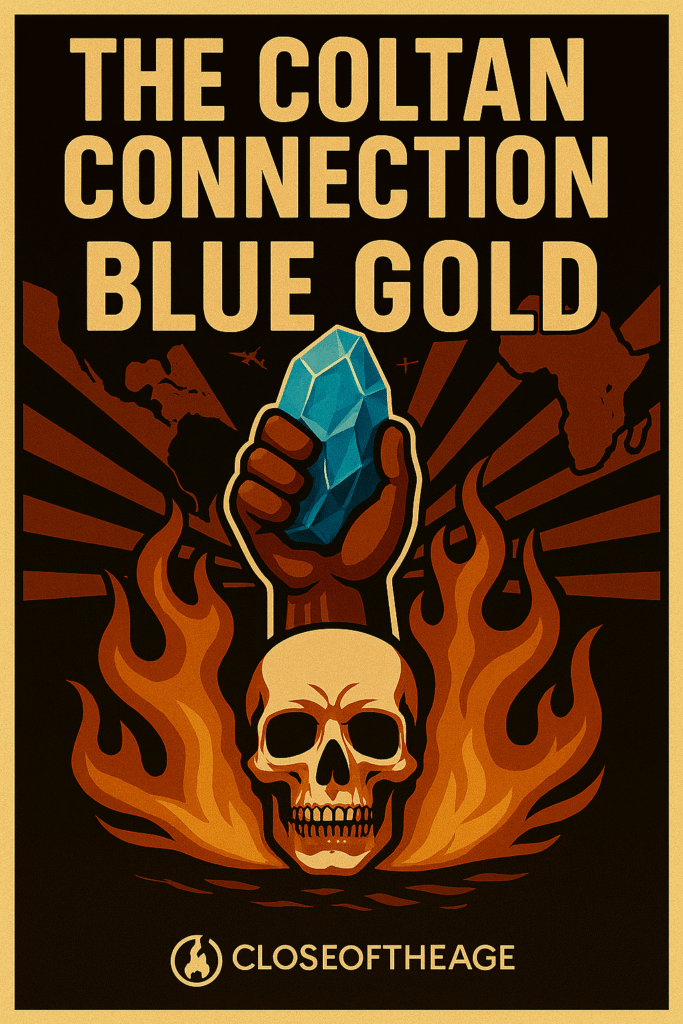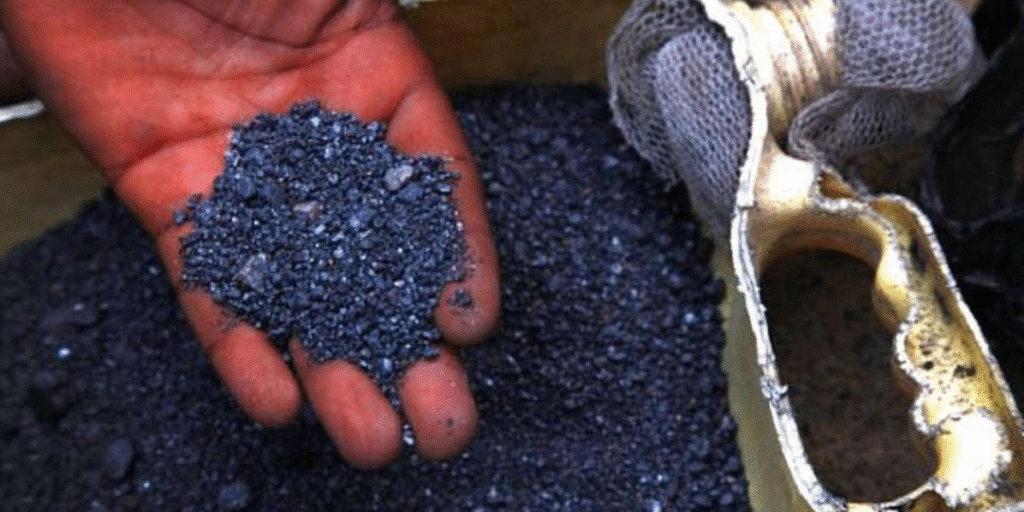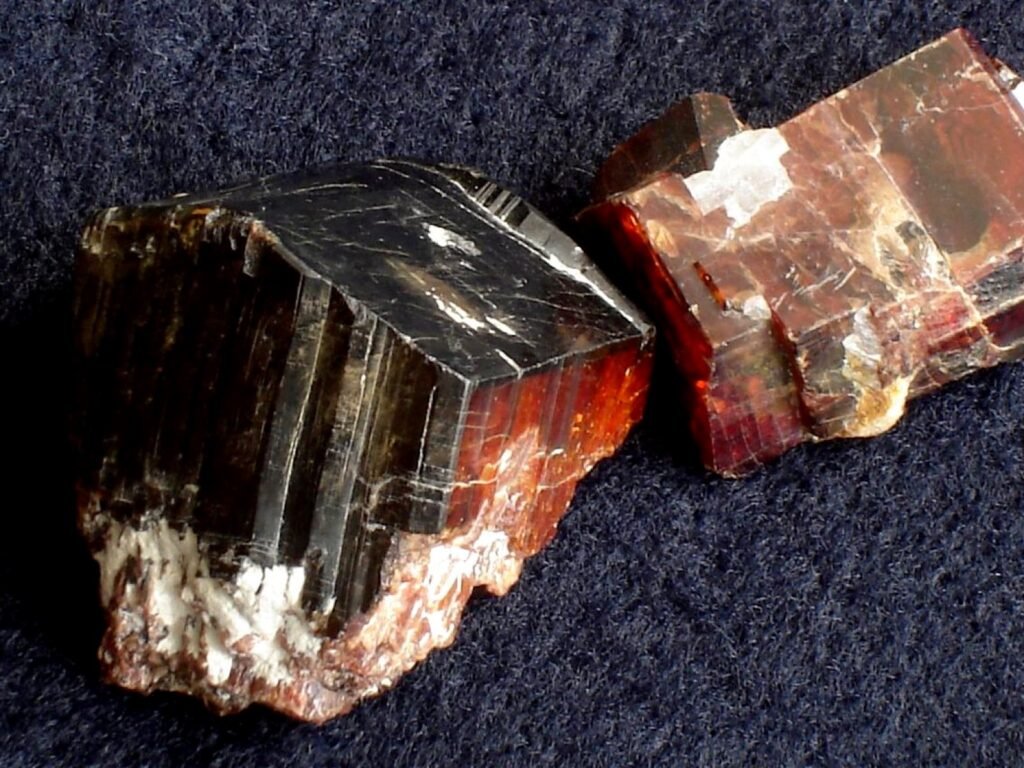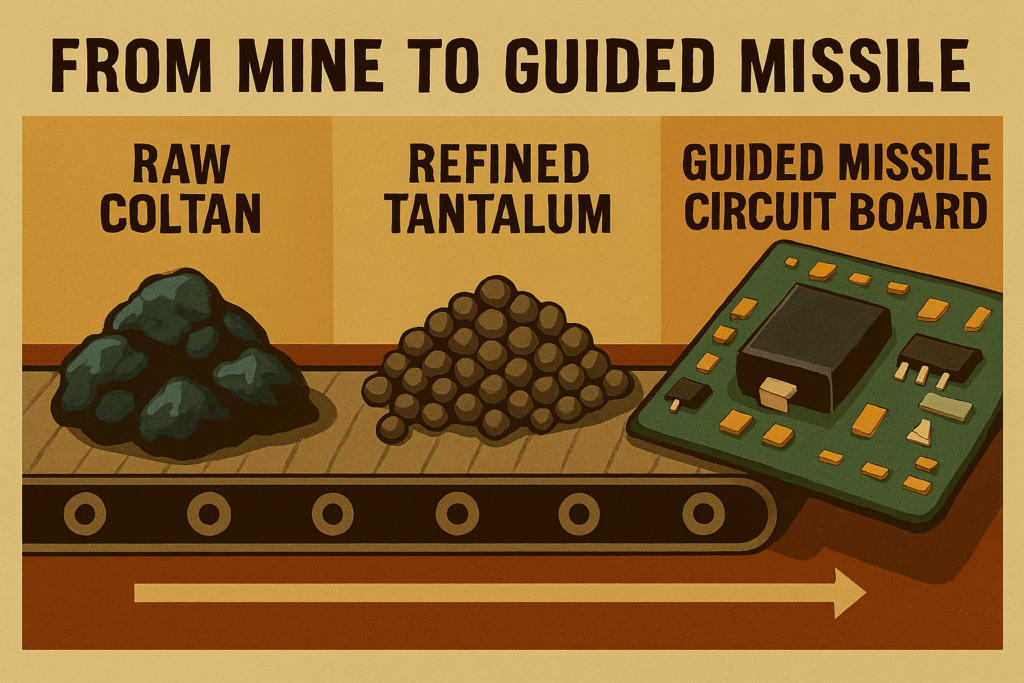A Close of the Age Special Report by Robert Wright

Introduction
Coltan isn’t a household word—but it should be.
This rare mineral powers the very devices and weapons that define modern warfare. And while the United States has none of it, China, Russia, Brazil, Venezuela, the Congo, and Greenland sit atop the richest deposits on Earth. This post exposes why Trump’s administration quietly targeted three of those regions—not for ideology, not for drugs, but for control of coltan. Because without it, America’s military edge vanishes.
What Is Coltan—and Why It Matters
Coltan (short for columbite-tantalite) is essential for capacitors in missiles, drones, satellites, and encrypted communications. It’s not just strategic—it’s irreplaceable. Without it, our military tech stalls while rival nations surge ahead.

As Michael T. Klare warned in Resource Wars, strategic minerals like coltan are no longer just commodities—they’re catalysts for conflict. This isn’t speculation—it’s doctrine. Control the minerals, control the battlefield.
“The pursuit of vital resources will increasingly shape the conduct of international relations and the use of military force.” -M.T. Klare
What is Coltan Worth?
Coltan is used almost exclusively for defense electronics. Modern missiles and satellites cannot exist without Coltan. It is worth five-times as much as Titanium, used in Aerospace and medical industries. To the US Military, due to our not having any of it to mine, and because it is essential to modern warfare technologies, Coltan is worth more than gold or diamonds.
The U.S. Dependency on China
Despite its global dominance, the U.S. has no domestic coltan reserves. Our military supply chain relies heavily on Chinese imports—making us vulnerable to embargoes, manipulation, or outright denial. In a conflict scenario, that’s a fatal weakness.
Trump’s Quiet Focus on Coltan-Rich Zones

Forget the headlines about drugs or dictators. Trump’s administration zeroed in on three regions with massive coltan deposits:
Venezuela: Sanctions and covert ops are not about socialism or drugs — they are about controlling coltan.
Congo: Military aid and “stabilization” efforts masked coltan extraction motives.
Greenland: The bizarre offer to “buy” Greenland wasn’t about ice—it was about rare earths and coltan beneath it.
When Sovereignty Becomes a Death Sentence
Resource nationalization isn’t just a policy—it’s a provocation. When Libya under Gaddafi and Iraq under Saddam Hussein moved to reclaim control of their oil and mineral wealth by nationalizing their resources, the consequences were swift and brutal: military invasions, regime change, and the assassination of their leaders. These weren’t wars of liberation—they were warnings. Sovereign control of strategic resources is treated as a threat to global order.

“You nationalize your minerals, you sign your death warrant.” — Unspoken Doctrine of Empire
Gaddafi’s declaration to nationalize Libya’s oil wasn’t just economic—it was existential:
“We are not afraid. We will nationalize our oil and use it for our people.” — Muammar Gaddafi, 2009
This pattern echoes today. Nations rich in coltan and rare earths—Venezuela, Congo, Greenland—are pressured, sanctioned, or destabilized. Not because of ideology, but because of geology.
“Geology, not ideology, determines who gets invaded.”
The Myth of Intervention
Humanitarian language cloaks mineral ambition. “Stability” becomes a euphemism for compliance, and “aid” a euphemism for access. Sovereign nations that resist extraction are branded unstable—not because of their governance, but because of their geology.
The real instability lies in the scramble to control what lies beneath their soil. Rare earths, coltan, lithium—these are not just commodities. They are the lifeblood of empires, the circuitry of dominance. And when a nation dares to nationalize its veins, it is not offered dialogue—it is offered drones.
The Burkina Faso Example
Consider Burkina Faso under Thomas Sankara, who rejected IMF (International Monetary Fund) loans and sought to keep the nation’s resources sovereign/nationalized. His assassination in 1987 was followed by decades of foreign-friendly extraction policies. As Sankara warned, “He who feeds you, controls you.” The humanitarian narrative masked a mineral agenda.
2000/03/30 fact sheet: Peacekeeping in DR of Congo
Conclusion
This isn’t about drugs, violence, or ideology—it’s about minerals. Coltan is the lifeblood of modern warfare, and the U.S. is dangerously dependent on foreign powers to access it. Trump’s administration didn’t just chase headlines—it chased deposits. And as global tensions rise, the battle for coltan will define the next frontier of power. Resource sovereignty isn’t just inconvenient—it’s a threat to those who want the earth’s veins unguarded.
© Robert Wright · CloseoftheAge.com · Sep 5, 2025 · 12:30 MDT · Timestamp: The Coltan Connection

Comments
Author
It seems to me like there is a media blackout right now regarding the Coltan connection. You heard it here first.